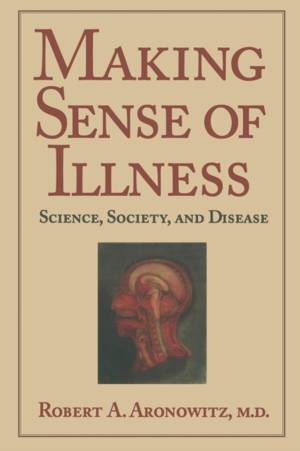
- Afhalen na 1 uur in een winkel met voorraad
- Gratis thuislevering in België vanaf € 30
- Ruim aanbod met 7 miljoen producten
- Afhalen na 1 uur in een winkel met voorraad
- Gratis thuislevering in België vanaf € 30
- Ruim aanbod met 7 miljoen producten
Zoeken
€ 63,45
+ 126 punten
Uitvoering
Omschrijving
Making Sense of Illness is a fascinating investigation into the social and clinical factors that determine what constitutes a "legitimate" illness in the twentieth century. By examining six case studies of diseases that have emerged within the past fifty years--from what we now consider to be "straightforward" diseases such as coronary heart disease, to the currently widely-debated Chronic Fatigue Syndrome--Aronowitz examines the historical and cultural factors that influence how doctors think about illness; how illnesses are recognized, named, classified, and finally, what they "mean" in an individual and social context. The choices that are available to the investigators, clinicians, patients and the processes by which change occurs are factors that all play a great role in "legitimizing" an illness, and these are the roles that are seldom examined. By juxtaposing the histories of each disease, Aronowitz shows how cultural and historical precedents have determined research programs, public health activities, clinical decisions, and even the patient's experience of illness. This is a must-read for anyone interested in public health and the history of medicine in the United States.
Specificaties
Betrokkenen
- Auteur(s):
- Uitgeverij:
Inhoud
- Aantal bladzijden:
- 286
- Taal:
- Engels
- Reeks:
Eigenschappen
- Productcode (EAN):
- 9780521558259
- Verschijningsdatum:
- 28/05/1999
- Uitvoering:
- Paperback
- Formaat:
- Trade paperback (VS)
- Afmetingen:
- 153 mm x 228 mm
- Gewicht:
- 394 g

Alleen bij Standaard Boekhandel
+ 126 punten op je klantenkaart van Standaard Boekhandel
Beoordelingen
We publiceren alleen reviews die voldoen aan de voorwaarden voor reviews. Bekijk onze voorwaarden voor reviews.











